Mass Effect: Andromeda is a crushing disappointment from top to bottom and an inadvertent argument for letting the Mass Effect franchise rest in peace.
Within the first few hours of gameplay, I had already trained myself not to look directly at a character when they were speaking and focus instead on the subtitles below. It reduced the uncanny valley body horror of their warped putty faces and allowed me to focus strictly on what was being said.
That too, was a mistake.
You see, first and foremost among the copious failings of Andromeda, the long-awaited revival of the beloved Mass Effect sci-fi RPG series, is its writing. Where the original trilogy delivered its space opera vision with compelling panache from beginning to end, Andromeda offers you an opening as cold and sterile as the cryo-pod from which you emerge.
You are [Insert Name] Ryder, a Pathfinder for the Andromeda Initiative, a deep-space colonization mission departing from the Milky Way just prior to the events of Mass Effect 3. Creating your personalized Ryder is weirdly unpleasant, especially considering the excellent customization available in the latest Dragon Age title — or even any of the previous Mass Effect installments, even though the latest entry is five years old at this point. Facial hair in particular looks like pudding smeared across your character’s complexion, and if there are makeup options that don’t look outright clownish, I couldn’t find them.
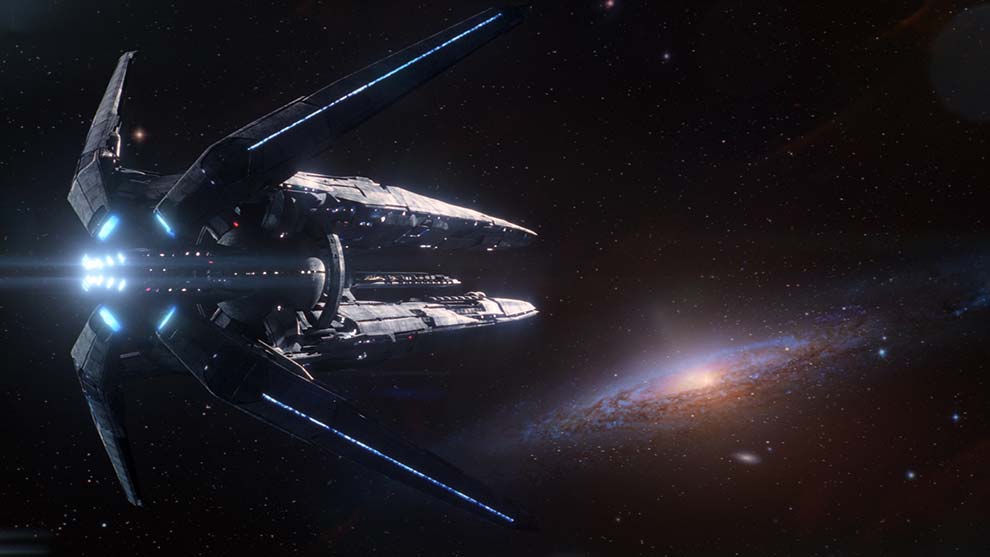
You can also choose a background for your protagonist, but outside of very specific builds the decision has little to no relevance for the rest of the game. If you were looking for any sort of implementation in the wider story, or even references to your chosen history, you’re out of luck.
As the Messianic Pathfinder, you are gifted with an absurd level of authority to make impromptu decisions for the tens of thousands of colonists that left the Milky Way for greener pastures. Your first mission will take you to a planet wracked by violent lightning storms, featuring floating rocks that you know must be interesting, because the characters comment about them no less than four times within the first few minutes.
Ryder can be anything he wants to at a whim, with no training required due to Plot Reasons™. For similar Plot Reasons™, he cannot take more than three skills with him on a mission at any given time. Depending on the skills chosen, there are profiles to equip with various buffs. Some players might enjoy the freedom of completely changing who you are whenever you like, but it robs the character of some much-needed identity.
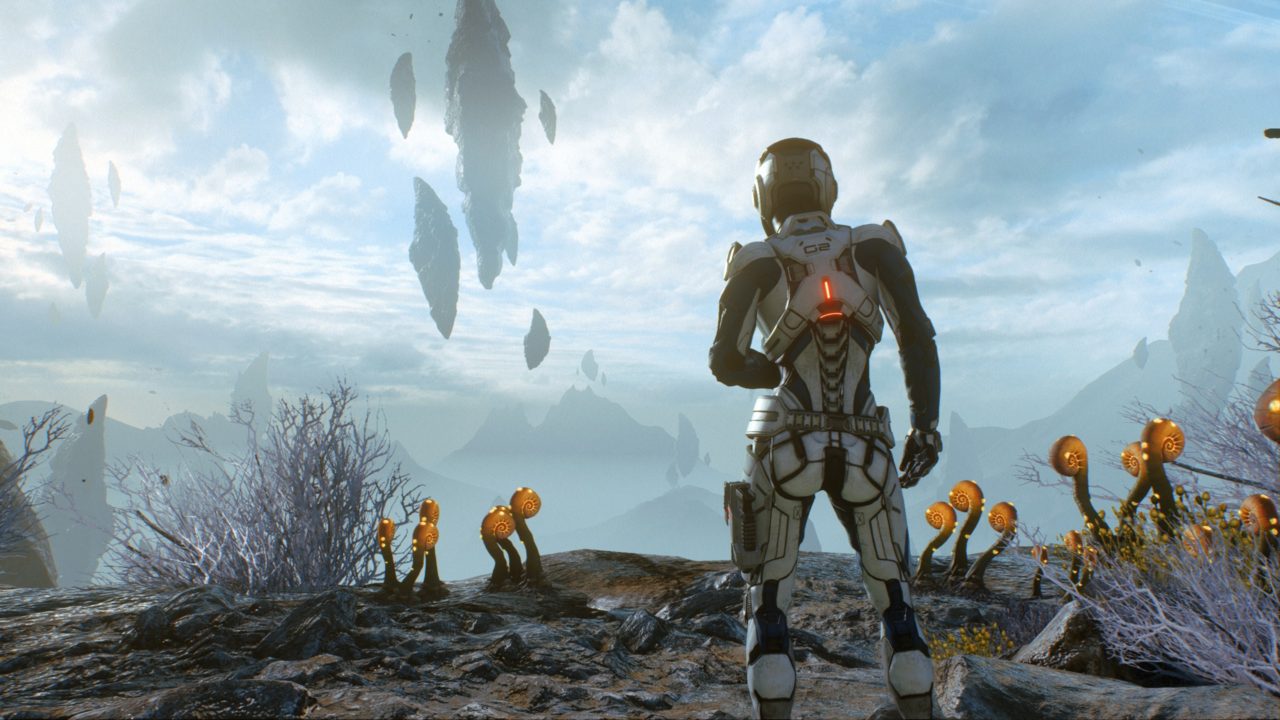
In case there was any chance you weren’t sure of how the game was going to play out, the shooting begins immediately. It doesn’t stop for the entirety of your playthrough and serves as the default solution to, well, everything. Despite vague overtures about racial and social sensitivity, this game — ostensibly about discovery and communication — devolves immediately into a decidedly mediocre third-person shooter.
The overall game structure is more than reminiscent of Dragon Age: Inquisition; it is virtually identical. Each visitable planet serves as the Andromeda equivalent of a region, with each filled to the brim with MMO-style quests that have little more personality — and quite often less — than something from a genre based on being just barely interesting enough to keep you from logging out and canceling your monthly subscription.
The Mako — the reviled the all-terrain vehicle from the original Mass Effect — returns, rebranded as the Nomad, and is every bit as enjoyable to control as it was in the first game. Which is to say, “not fun in any way.” There are upgrades to make controlling it ever so slightly less painful, but these mostly concern turning it from gameplay focused around it being deeply irritating to merely inconvenient.
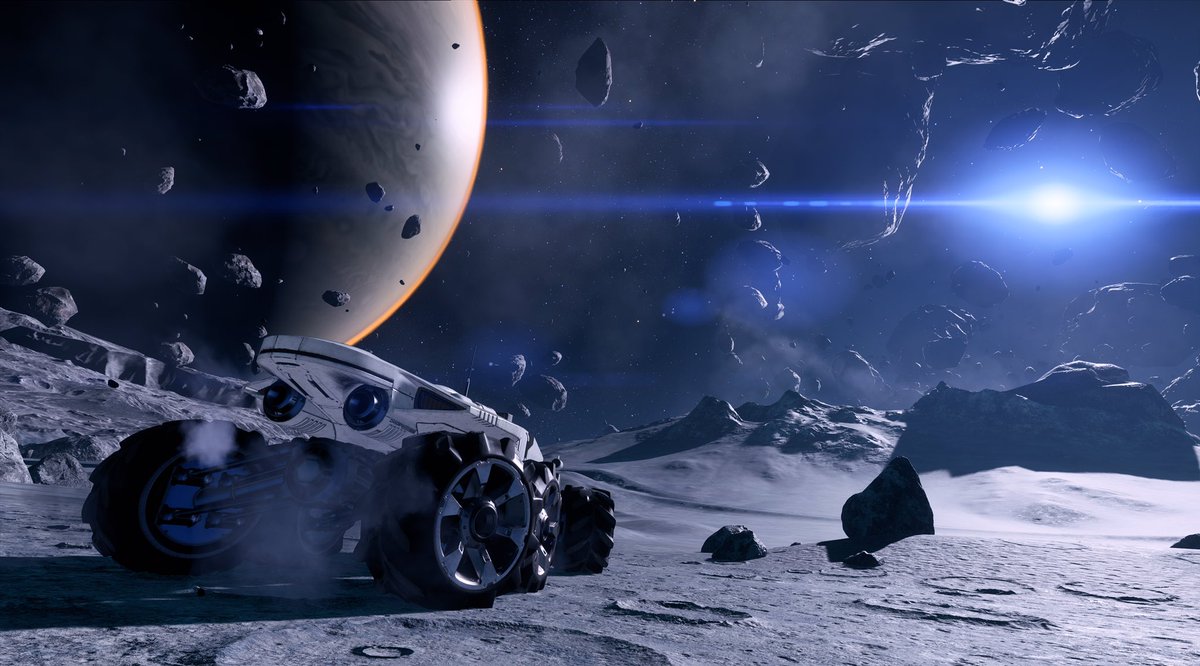
Gone are the squad controls that added even a cursory layer of tactics to combat in previous games. Without the ability to alter their equipment or command them beyond the most elementary of directions, squadmates exist purely to add flavor to your journey. It’s a mission they don’t seem to take very seriously. The occasional conversations are acted well enough, but the dialogue seems to have been written by an intern in desperate need of coffee.
When there is so little investment in the development of the characters, even the most dramatic moments feel trite. This is the first Mass Effect game where I had no interest in the romantic subplots, because any further unnecessary exposure to the game’s terrible characters (and their ghoulish facial animations) seemed like a terrible decision. Softcore alien porn just isn’t worth putting yourself through that.
Among the cast, Vetra, a female Turian mercenary, is a character that is almost interesting. Unfortunately, she has far too little development to truly find her place among the crew. Drack is much the same — an overtly paternal Krogan that could have used even half the time spent on Wrex in the original Mass Effect. Or Grunt in Mass Effect 2 and 3, for that matter. Your Asari squadmate Peebee never strays from being singularly irritating, following Ryder’s own tendencies to sound like a walking, talking, self-satisfied stream of late night tweets.
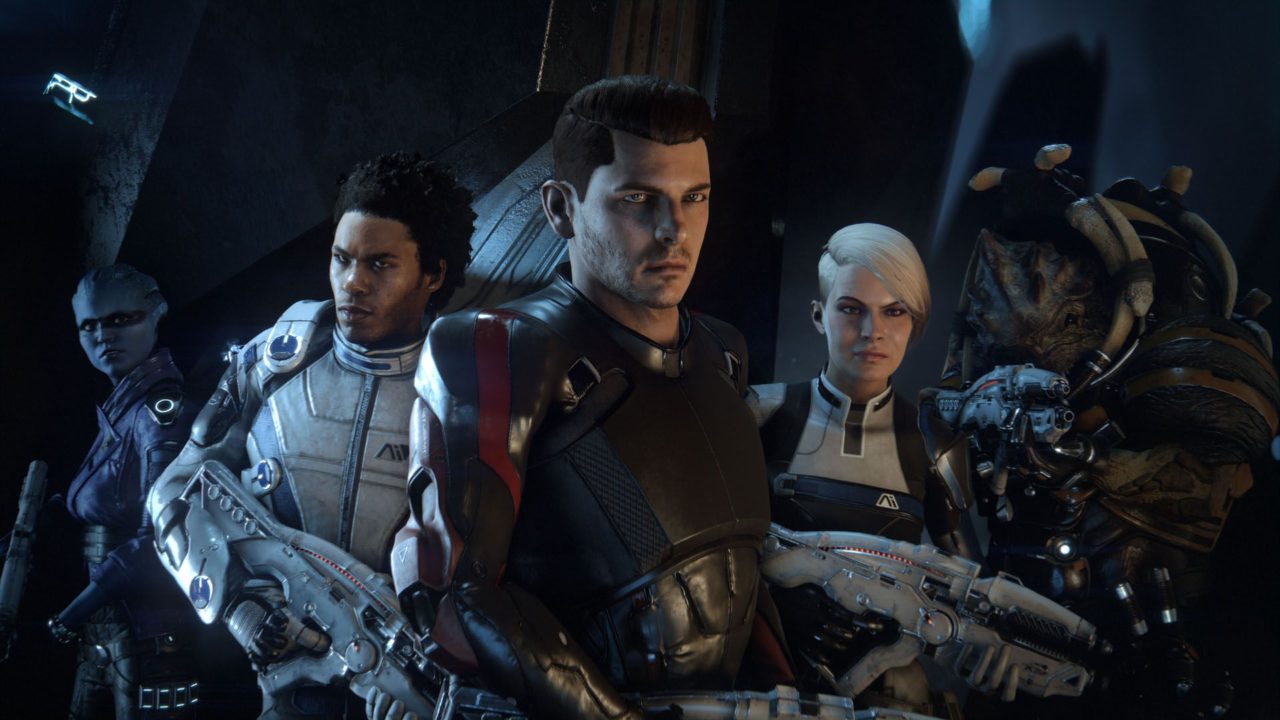
Liam, Cora, and Jaal feel like the only characters with any sort of genuine motivation to stick with the mission. They’re also the least original members of the cast. Nevertheless, they provide the closest thing that Andromeda has to interesting or relevant commentary. Bioware is famous for its deep and memorable characters. It is difficult to see them slide so far into uninspired filler with this ensemble.
That lack of focus and ambition extends to the galaxy at large, which has bartered away its most interesting races for the two most grating options possible. The aliens of the previous trilogy — the Elcor, Geth, Hanar, Volus, Quarians, and many more — have been traded for a legion of blue folks that are defined by their emotional honesty and a horde of Religious Zealot Space Nazis that seem crafted specifically to be as easy as possible to justify slaughtering. “The Remnant” provide all of the space magic this time around, subbing in for the original trilogy’s Reapers in a pinch, and with galling similarity.
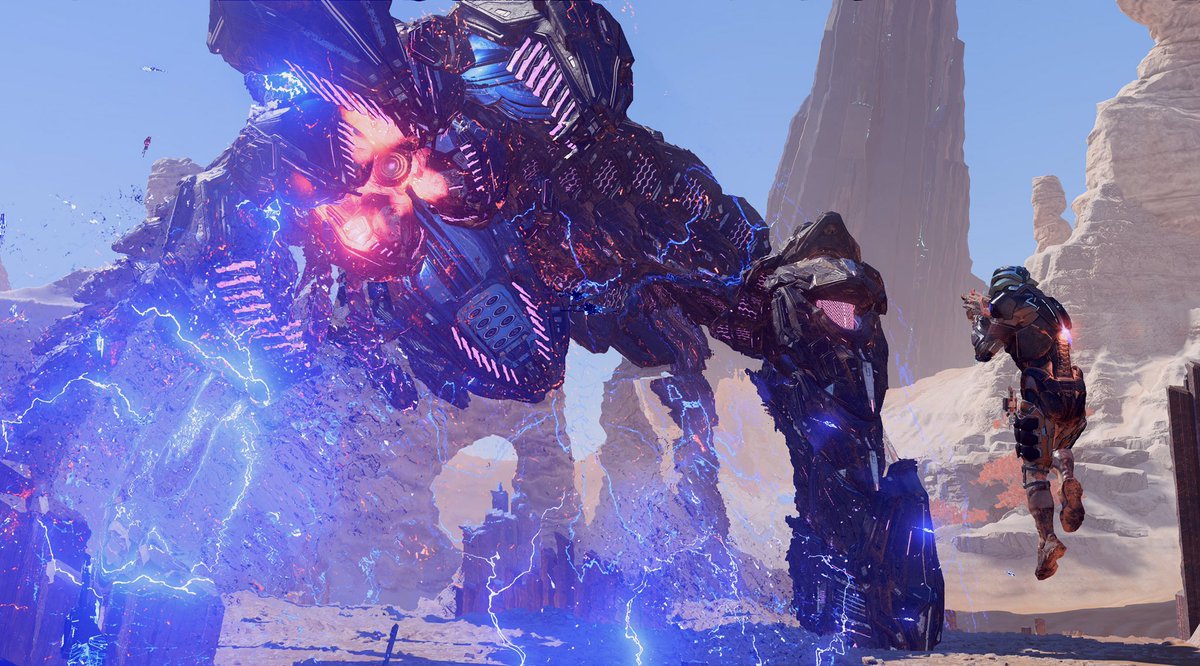
Worse, Andromeda earns all of this criticism before even getting to the game’s numerous bugs. Oh, the bugs.
Both friendly NPCs and enemies frequently snapped into their “T-pose” default postures during dialogue and combat alike. It makes the fighting considerably easier when a giant arctic beast folds its legs and freezes, but it isn’t quite as satisfying. Interiors flicker into and out of existence, spawning and despawning all objects within at a manic pace. Objects regularly cease to exist outside of scanning mode, as if some rocks have been locked to the wrong visual layer of the environment. The non-player characters that aren’t floating above the floor in their default poses were most often shin-deep inside of it, and there were at least a dozen instances in my playthrough of enemies stuck inside terrain, rendering them unkillable and requiring me to a reload my last save or be unable to continue progressing in the game.
Speaking of reloads, you’re going to want to keep some backup saves handy. There are save-corrupting bugs that occur if your braindead companions die, the aforementioned unkillable enemies, and massive chunks of exposition that are frequently interrupted and canceled by your portable AI’s insistence on telling you every single time the temperature or weather changes in any way.
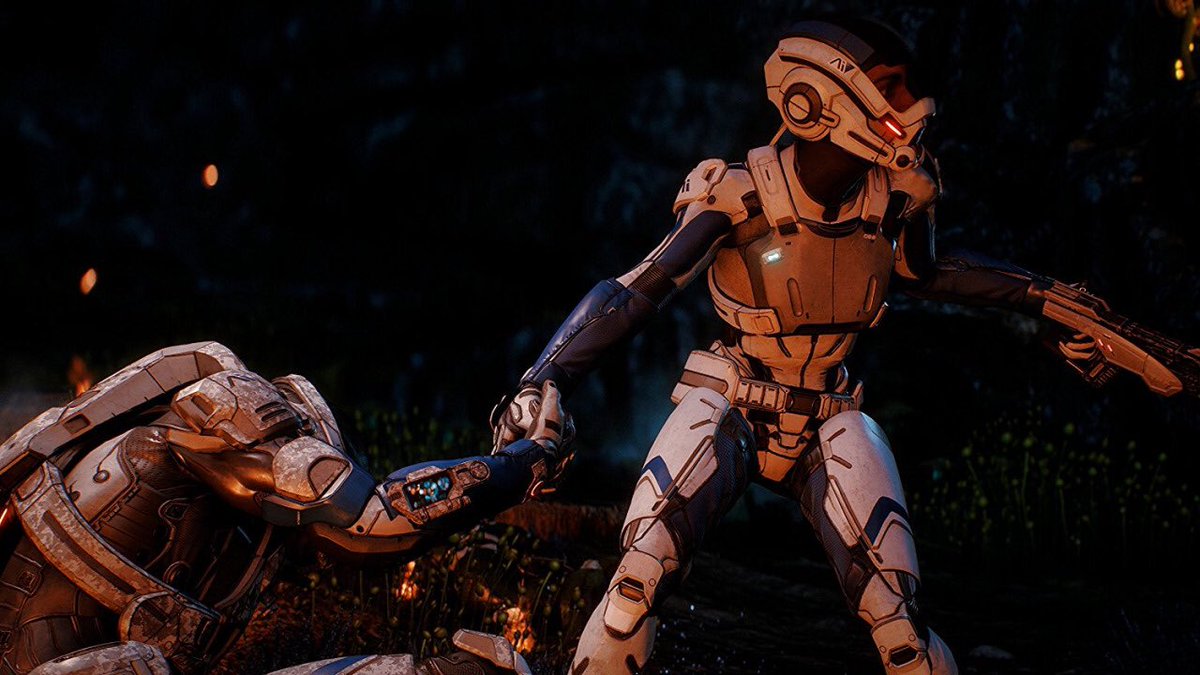
And you may as well consider that exposition gone for good. The alternative is trying to find a summary in what I can comfortably call the worst in-game journal in an RPG in memory. The information is added in snippets to a variety of files if it’s added at all, requiring you to search through dozens of subfolders for whatever has caused the unread exclamation mark beckoning you to read some new notification.
The shoddy interface extends to the game’s crafting system. I genuinely cannot discern the design philosophy behind a menu system that is so blatantly obtuse. Crafting armor and weapons is a painful affair. You will need to gain the right number of the right type of research points. Then, you must gather the random crafting materials from the nodes you mine in the original Mass Effect-style with your vehicle. If you want to modify your weapon in any way, repeat the process for each mod. The same is true for armor.
And if you want a better version of any equipment — handily designated I-IV for each level of quality for that added splash of personality — repeat the entire process. It’s better to just wear whatever you pick up and hope for the best.
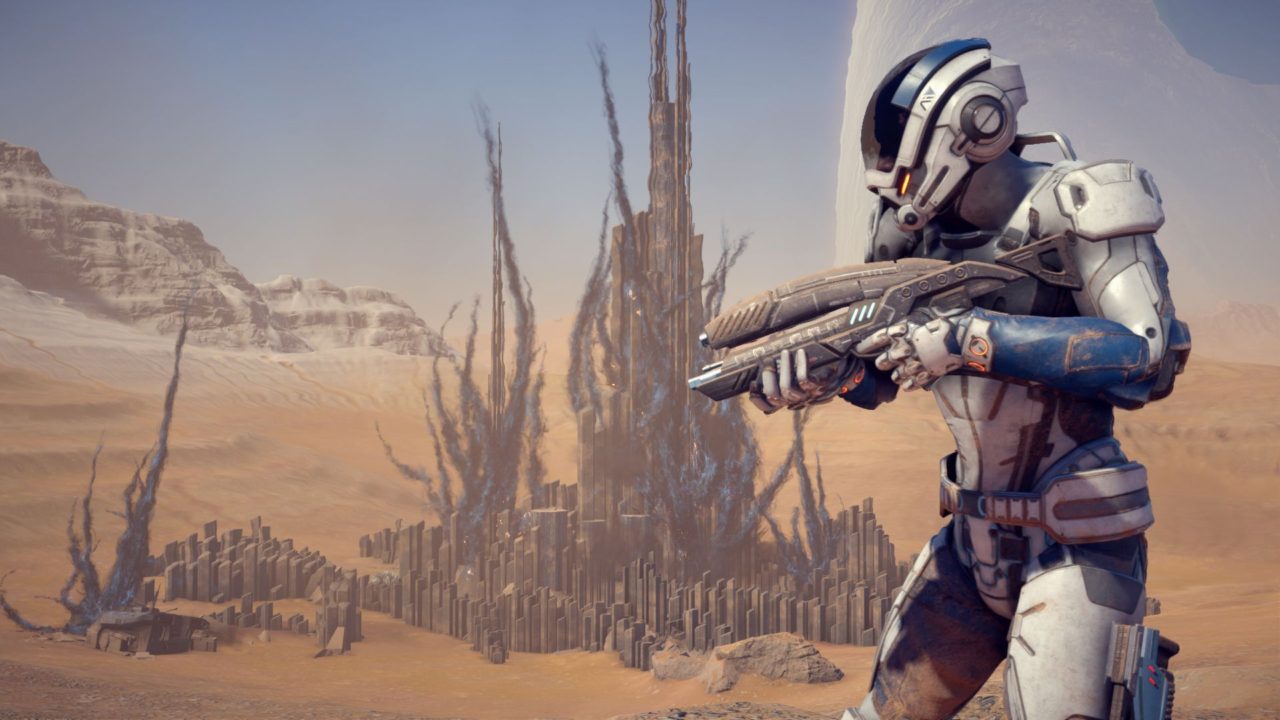
I can’t finish talking about the interface without discussing the ship navigational map, which features long animations for every single click. Just switching from scanning one planet to another requires multiple steps, each one accompanied by several seconds of sluggish zooming. It consistently feels as if the game is punishing you for exploration — to say nothing of the fact that only four of the planets you encounter are actually explorable in any meaningful way.
All of this might have been tolerable in a galaxy with interesting problems. However, the narrative lazily abandons the complex issues of a post-Reaper Milky Way for a by-the-numbers jaunt through a galaxy apparently populated by the least interesting living things in the universe.
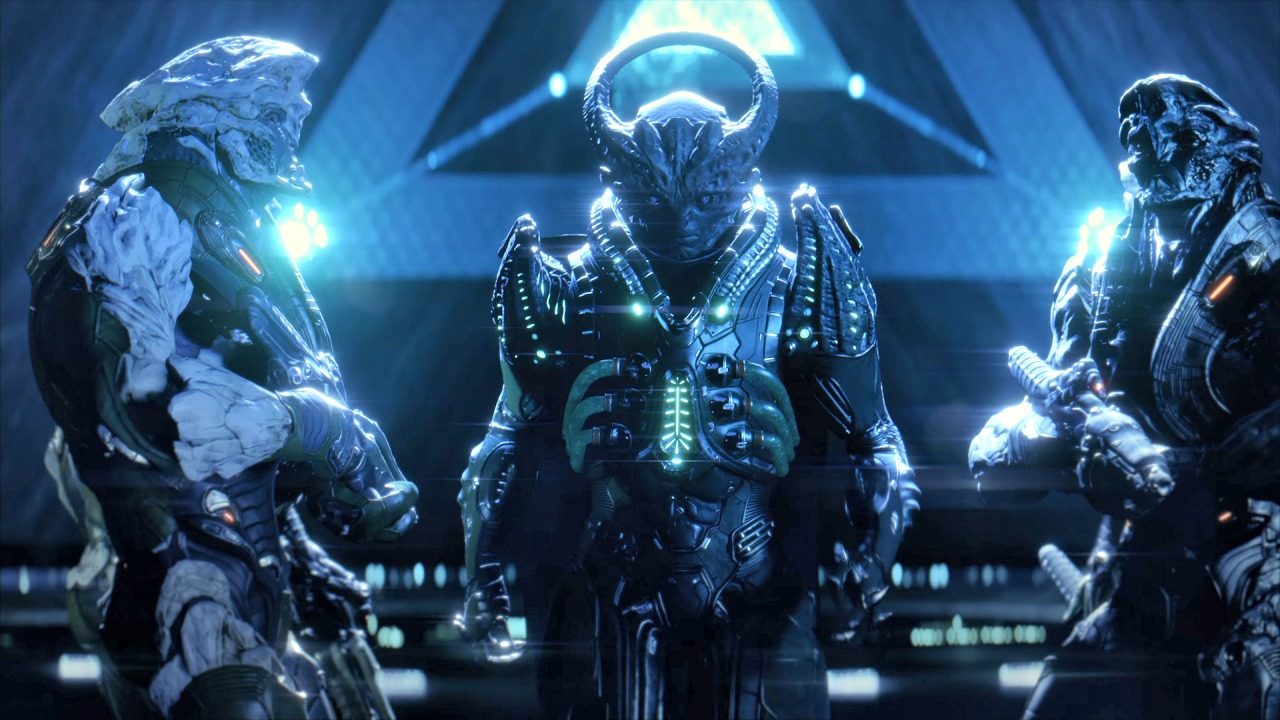
Some of these issues might have been easier to ignore if the game wasn’t ugly. Whether it’s lighting effects that feels like an afterthought, the horrifying facial animations, or just the blandness of planets that each seem to sport roughly two sorts of plant and one biome, there just isn’t much to see beyond some occasionally dramatic camera angles. The Frostbite engine the game is built on may have a lot of bells and whistles that have powered other visually stunning titles, but it can only do so much to disguise uninspired aesthetics.
Multiplayer also returns in Andromeda from Mass Effect 3. It was one of my favorite parts of the previous games, and I had high hopes for its inclusion in Andromeda. Fortunately, it returns in a more or less identical manner and plays reasonably well. For the few people buying the game for this reason alone, it’s not a total wash. While at first I’d have liked to see Andromeda‘s development team expand on the concept or do something new, after experiencing the single player campaign they put together, I’m glad they just left it alone.
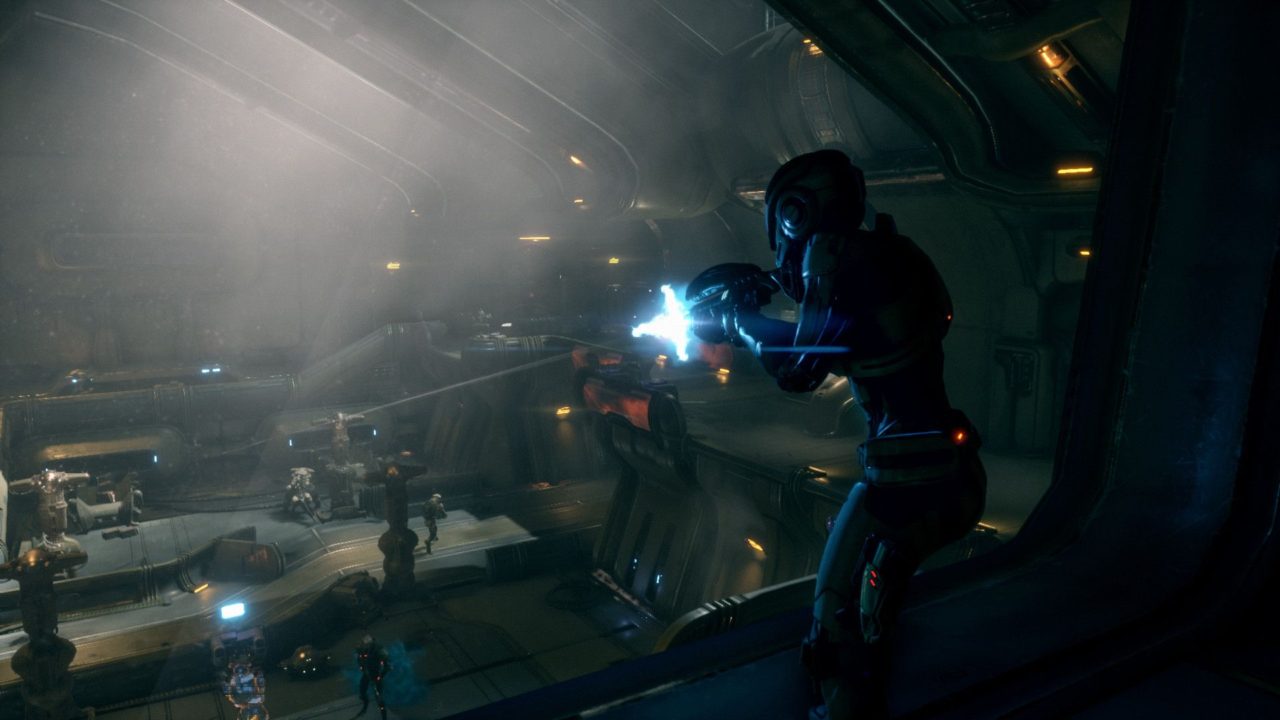
I wanted to love Mass Effect: Andromeda because of how much I enjoyed the previous games in the series. In fact, I had prepared to review the game with a disclaimer about how much my love for the franchise could color my opinion of this much-anticipated outing. It was an unnecessary consideration. Every aspect of the game is tainted with bland, inhuman sterilization and no personal, political, or ethical issue is addressed with even a drop of the sincerity for which the original trilogy is renowned.
Mass Effect: Andromeda lacks any of the original trilogy’s complexity or compelling issues and instead chooses to carry over only the worst ideas of its predecessors into a galaxy that just isn’t worth exploring.
After five years of waiting, I’ve changed my mind. I don’t need any more Mass Effect.
Note: The development team has committed to addressing some of the many issues with this game. This review is directly applicable to the release version. Unfortunately, while updates may iron out the most egregious mechanical issues, no amount of patching will fix this game’s core design issues or rewrite the lazy storytelling that they frame.
Follow Nate Church @Get2Church on Twitter for the latest news in gaming and technology, and snarky opinions on both.
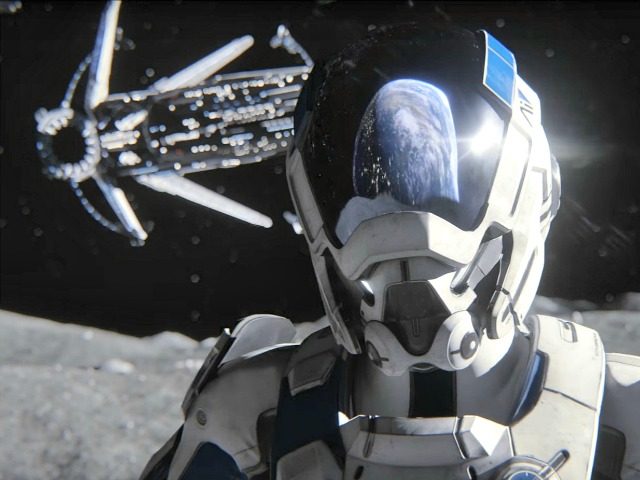
COMMENTS
Please let us know if you're having issues with commenting.